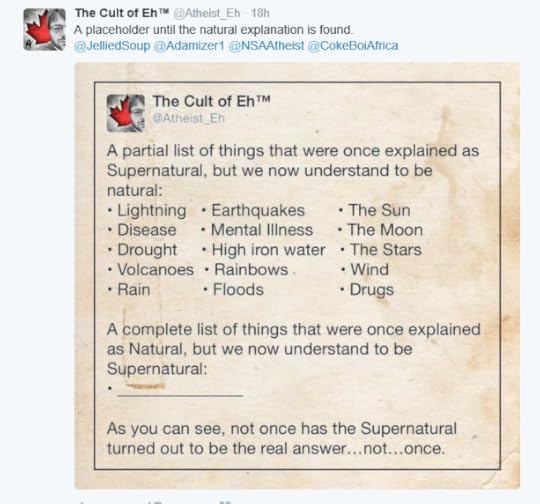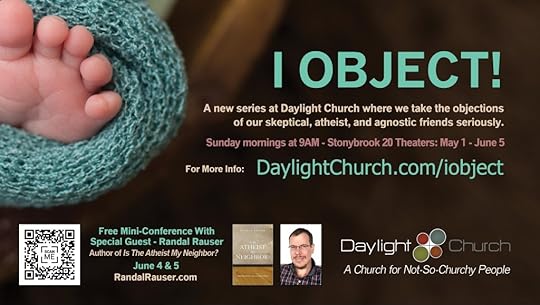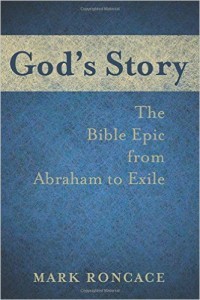Randal Rauser's Blog, page 160
February 3, 2016
How can you do this to anybody? A review of The Stoning of Soraya M.
 “How can you do this to anybody?”
“How can you do this to anybody?”
The question comes from Soraya M. to her Iranian village as she is about to be stoned for false charges of adultery. (Soraya’s husband fomented the charges based on his desire to be rid of her so he might marry a fourteen year old girl.)
A man bellows back: “It’s God’s law!”
Soraya is buried up to her waist. Her hands are tied behind her back. The execution can now proceed.
The villagers line up to stone her. Her father is first. “God help me,” he calls out. “Kill this whore!”
His stones miss their target. Frustrated, Soraya’s husband grabs a rock and hits her twice in the forehead. Her head snaps back and blood spills from the wound, soaking her white dress, and spattering onto the dusty ground.
Her sons are next.
Then the men of the village come up, one after another, pelting her. Cheering. She’s semi-conscious now, swaying.
All hell breaks loose as a flurry of sharp stones erupts from the mob. Blood sprays. A woman turns her head and vomits.
One could only wish The Stoning of Soraya M. was a work of fiction. But the film is based on journalist Freidoune Sahebjam’s bestselling 1990 book La Femme Lapidée which recounts the real stoning of Soraya M.
I watched this film for two reasons. First, I believe it is important that we confront the barbarism and inhumanity in our world today. And as the film makes brutally clear, barbaric practices like public stonings continue to occur in the world today.
Second, I watched the film in support of my ongoing reflections on the problem of biblical violence, and in this case the brutality of particular Torah punishments like stoning. It’s one thing to read about a legislative mandate supporting public stoning; it’s another thing entirely to view a public stoning, albeit one that is a cinematic recreation.
And that brings me back to Soraya’s question with which I began this review: “How can you do this to anybody?”
Natural, Supernatural, and … Scientism?
 Yesterday I received this tweet in my Twitter feed. But I’m not even sure what this is saying. So the following exchange ensues:
Yesterday I received this tweet in my Twitter feed. But I’m not even sure what this is saying. So the following exchange ensues:

Fortunately, one can refashion the concept without invoking supernatural/natural. Instead, one can say something like this: “Increasingly, scientists are explaining phenomena in the world which were once attributed to the direct actions of divine beings.”
Um, yeah, that’s true. But what’s supposed to follow? That science will one day explain everything?
February 2, 2016
I Object! A Conference on Biblical Violence … and Beyond
If you’re in the Louisville, KY area, check out this mini-conference I’m doing at Daylight Church on June 4-5 to cap off their month-long “I Object” series.
Daylight is “a church for not so churchy people” (though I’m sure churchy people are welcome too!). And I really admire the kind of outreach they have to their community. The entire “I Object” series looks great.


February 1, 2016
The Atheist and the Antitheist
This is a PDF (without footnotes) of the paper I delivered as the 2016 FaithLife Lecture at Concordia University in Edmonton on January 26th. The paper is titled “The Atheist and the Antitheist: A Critical Analysis of the Rebellion Thesis.” While the paper shares common ground with my book Is the Atheist My Neighbor?, it offers a novel summary of the argument of the book complemented with some new analysis. Alas, as I’ve posted the reader’s edition (i.e. the one I read from the podium), no footnotes are included.
Download here: The Atheist and the Antitheist
My Suggestion for Bernie Sanders’ New Campaign Slogan
When Bernie Sanders declared his candidacy last spring, few anticipated that this relative unknown, who was polling at a meager 3%, would make much progress against The Hillary Machine ™. But now that he’s a real possibility, he needs a campaign slogan. This morning it occurred to me that the perfect song would be Megadeth’s “Peace Sells … But Who’s Buying?”. (Interesting fact: the lead singer, driving force, and living heart of Megadeth, Dave Mustaine, is a Christian.)
Megadeth’s lyrics have always been driven by political and social issues, and “Peace Sells” (a song that is thirty years old!!) is no different. Social justice, economic equality, skepticism of hawkish foreign policy, the working poor, and overturning the status quo: it’s all there. This will definitely help you feel the Bern:
What do you mean, “I don’t believe in God”?
I talk to him every day.
What do you mean, “I don’t support your system”?
I go to court when I have to.
What do you mean, “I can’t get to work on time”?
I got nothing better to do
And, what do you mean, “I don’t pay my bills”?
Why do you think I’m broke? Huh?
[Chorus:]
If there’s a new way,
I’ll be the first in line.
But, it better work this time.
What do you mean, “I hurt your feelings”?
I didn’t know you had any feelings.
What do you mean, “I ain’t kind”?
I’m just not your kind.
What do you mean, “I couldn’t be the president of the United States of America”?
Tell me something, it’s still “We the people”, right?
[Chorus: (repeat)]
If there’s a new way
I’ll be the first in line,
But, it better work this time.
Can you put a price on peace?
Peace,
Peace sells…,
Peace,
Peace sells…,
Peace sells…,but who’s buying?
Peace sells…,but who’s buying?
Peace sells…,but who’s buying?
Peace sells…,but who’s buying?
January 31, 2016
The View from Up There: Gravity and Aningaaq
I’m a big fan of astronomer Phil Plait’s science blogging. Today he posted some awesome photos snapped serendipitously by astronomer Steve Cullen atop Mauna Kea. Cullen caught striking images of a Chinese rocket burning up as it fell back into earth’s atmosphere. If you haven’t seen the pics yet, check them out here: “SPECTACULAR Photos of a Rocket Re-Entering Over Hawaii!”
Looking at those jaw-dropping, cool photos got me thinking about one of my favorite movies of recent years (and winner of seven Academy Awards), director Alfonso Cuaron’s 2013 film Gravity. Interestingly, what I like best about Gravity is a scene that doesn’t actually occur in the film. Or, rather, it occurs in the film but only from the perspective of astronaut Ryan Stone (Sandra Bullock). The scene comes at the point when Stone is ready to give up on the hope that she shall ever make it back to terra firma. She is slowly running out of oxygen and in her dying moments (so she thinks) she makes contact with a strange voice speaking an unknown language from somewhere back down on earth.
I always wondered what more I could learn about that voice. So a few months after seeing Gravity I did an online search and discovered that Cuaron’s son Jonas had made a short movie to accompany Gravity which introduces us to Aningaaq, the man behind the voice. What a beautiful juxtaposition is to be found in the interweaving of these two scenes, one of my favorite cinematic moments of recent memory.
I’ve included the scenes below.
Here is the scene from Gravity:
And here is Aningaaq:
January 30, 2016
Only One Savior: politics and religious exploitation
Thursday’s Fox News Republican Debate may have lacked Donald Trump, but it more than made up for it with some refreshing moments of political discourse, the high point being John Kasich’s bold call to help the mentally ill.
And then there were the low points. Among the lowest was Marco Rubio’s exploitation of religious belief for political gain:
In this exchange we learn that Marco Rubio is uncomfortable being called the potential “savior” of the Republican party. But why? Is Rubio unaware that one can acknowledge Jesus as the “savior” (i.e. “a person who saves, rescues, or delivers“) of the human race and fallen creation whilst recognizing that other persons can also be saviors with respect to other entities?
For example, in the 1980s Lee Iacocca’s savvy business sense saved Chrysler from bankruptcy. In that respect, one can describe Iaccoca as the savior of Chrysler. And a few weeks ago actor Jamie Foxx saved Brett Kyle from a fiery car wreck. In that respect, one can describe Foxx as Kyle’s savior. Neither of these declarations has any adverse theological implications. Nor, for that matter, would it be theologically problematic to call Rubio the savior of the GOP.
I suspect Rubio is aware of this fact. And this leaves me to conclude that his response in this exchange was nothing more than a willful misunderstanding of the question intended to pander to a conservative religious constituency. And along the way he also succeeded in marginalizing the vast tracts of the electorate who are not Christian.
But those concerns must be put to one side because a strong showing in evangelical Iowa is the current focus of Rubio’s strategy. Good short term strategy for a stronger showing in Iowa? Perhaps. But savior of the GOP? I think not.
January 28, 2016
83. God’s Story: A Conversation with Mark Roncace

 When I was growing up in the church, my earliest encounters with the Bible came in the terms of the Sunday school flannelgraph, a rather primitive technology in which Bible stories were acted out with pieces of fabric stuck to a felt board. At that time, the Bible seemed like a disjointed set of isolated stories, each with a moralizing instruction. Think of Aesop’s Fables with a pious twist.
When I was growing up in the church, my earliest encounters with the Bible came in the terms of the Sunday school flannelgraph, a rather primitive technology in which Bible stories were acted out with pieces of fabric stuck to a felt board. At that time, the Bible seemed like a disjointed set of isolated stories, each with a moralizing instruction. Think of Aesop’s Fables with a pious twist.
As I grew older, the flannelgraph retreated to the church closet and was replaced with another prop, the plastic hollowed out bread loaf that held a couple hundred little colored cards, each with a Bible verse neatly stamped on it. At this stage, the collection of fables was superseded by a bundle of propositional assertions to be memorized for easy future access.
In many respects, I am thankful for the flannelgraph and the bread loaf. The flannelgraph introduced me to a rich repository of stories, while the bread loaf whetted my appetite for scriptural memorization.
But in other key respects, the biblical formation I received in these pivotal years was critically lacking, not least because I never learned how these isolated stories and these bundles of colored cards fit into a larger whole, the narrative, God’s story. In particular, I never grasped the narratival backbone of the Old Testament, that which initiates at the calling of Abram and culminates in the anguish of exile.
 Enter Mark Roncace, Professor of Religion at Wingate University and author, co-author, and editor of many scholarly and popular books including Global Perspectives on the Old Testament (Pearson, 2013) and Jeremiah, Zedekiah, and the Fall of Jerusalem: A Study of Prophetic Narrative (Bloomsbury T&T Clark, 2005).
Enter Mark Roncace, Professor of Religion at Wingate University and author, co-author, and editor of many scholarly and popular books including Global Perspectives on the Old Testament (Pearson, 2013) and Jeremiah, Zedekiah, and the Fall of Jerusalem: A Study of Prophetic Narrative (Bloomsbury T&T Clark, 2005).
Mark is no stranger to The Tentative Apologist Podcast. He was previously on to discuss his 2012 book Raw Revelation: The Bible They Never Tell You About (CreateSpace). But in this episode of the podcast Mark joins us to talk about his most recent book, God’s Story: The Bible Epic from Abraham to Exile (CreateSpace, 2015).
The book is aptly named, for the it begins with the calling of Abram and ends in exile, spanning the so-called Deuteronomic history from Genesis 12 to the end of 2 Kings. In this fascinating work, Mark has removed all the non-narratival details including dense legal codes, seemingly endless genealogies, and expanded prayers. Mark has then modestly embellished the narrative, stitching it all together in a seamless and eminently readable whole. The result is exhilarating as one is acquainted with the wonder, the shock, and the sheer fascination of God’s story as they’ve never read it before.
January 27, 2016
Christianity and Atheism in Dialogue … and Debate
Last night I delivered the FaithLife lecture at Concordia University consisting of a paper in which I summarized the core arguments of Is the Atheist My Neighbor? A reception followed afterwards and I had a great conversation with several people including a very thoughtful atheist gentleman from the Society of Edmonton Atheists. The additional good news is that the lecture was filmed. I’ll let y’all know when it becomes available at Concordia’s Centre for Scholarship and the Christian Faith website.
In the interim, I’m really excited to let folks in the Edmonton area know that my friend (Christian) Jonathan Strand, Professor of Philosophy at Concordia, will be debating (atheist) philosopher Paul Beach at Concordia this coming Monday (February 1st). By the looks of this poster, things could get ugly 
January 26, 2016
The Popularity of Donald Trump as a spiritual exam of conservative Christianity
While I’ve already blogged from the bandwagon of those appalled by Donald Trump’s popularity, I think it is worthwhile reflecting for a moment on Trump’s popularity among conservative Christians. In particular, it is worthwhile reflecting on that popularity as a spiritual exam which reveals how spiritually unhealthy large tracts of conservative Christianity are.
The catalyst for this current reflection comes in a passage in a new NBC article titled “Anti-Trump Republicans Mull Strategy as Polling Lead Grows” in which we read:
“Katie Packer, a veteran of Mitt Romney’s 2012 campaign who is running the new anti-Trump group Our Principles PAC, also stressed the importance of undermining Trump’s credentials with the right. Her group has sent out mailers in Iowa and produced a web ad highlighting Trump’s past praise for single-payer health care, his previous call for a tax increase (he’s running on a multi-trillion dollar tax cut this year) and the time he endorsed impeaching George W. Bush.”
Of course, Packer’s focus is “the Right” in Iowa rather than “conservative Christians”. Nonetheless, a sizeable percentage of “the Right” in Iowa consists of conservative Christians.
Over the last seven months, Trump has cemented his status as a cynical, misogynistic, xenophobic, racist bigot. One would expect that gives the anti-Trump campaigner a lot to work with. And yet, despite all that good material, Packer believes the best way to reach the Right in Iowa, including all those conservative Christians, to point out that Trump has previously endorsed (1) single-payer healthcare, (2) a tax increase, and (3) the impeachment of a president who invaded a foreign nation under false pretenses, thereby leading to the death of tens of thousands of civilians, the destabilization of an entire region, and an economic cost of upwards of three trillion dollars?
Really?
You may disagree with single-payer healthcare and tax increases. You may even be hawkish on foreign policy. But this prioritization in which progressive stances on these topics are counted as more off-putting than misogynistic, xenophobic, racist bigotry reveals an inverted set of priorities and a deeply distorted moral vision.
Here’s the bit of silver-lining. Since we can assume that Donald Trump didn’t create that deeply distorted moral vision in this conservative electorate, we can at least be thankful for his candidacy insofar as it has cast a spotlight onto the extent of moral dissolution among many contemporary Christian conservatives. Hopefully now we can begin to address it.




